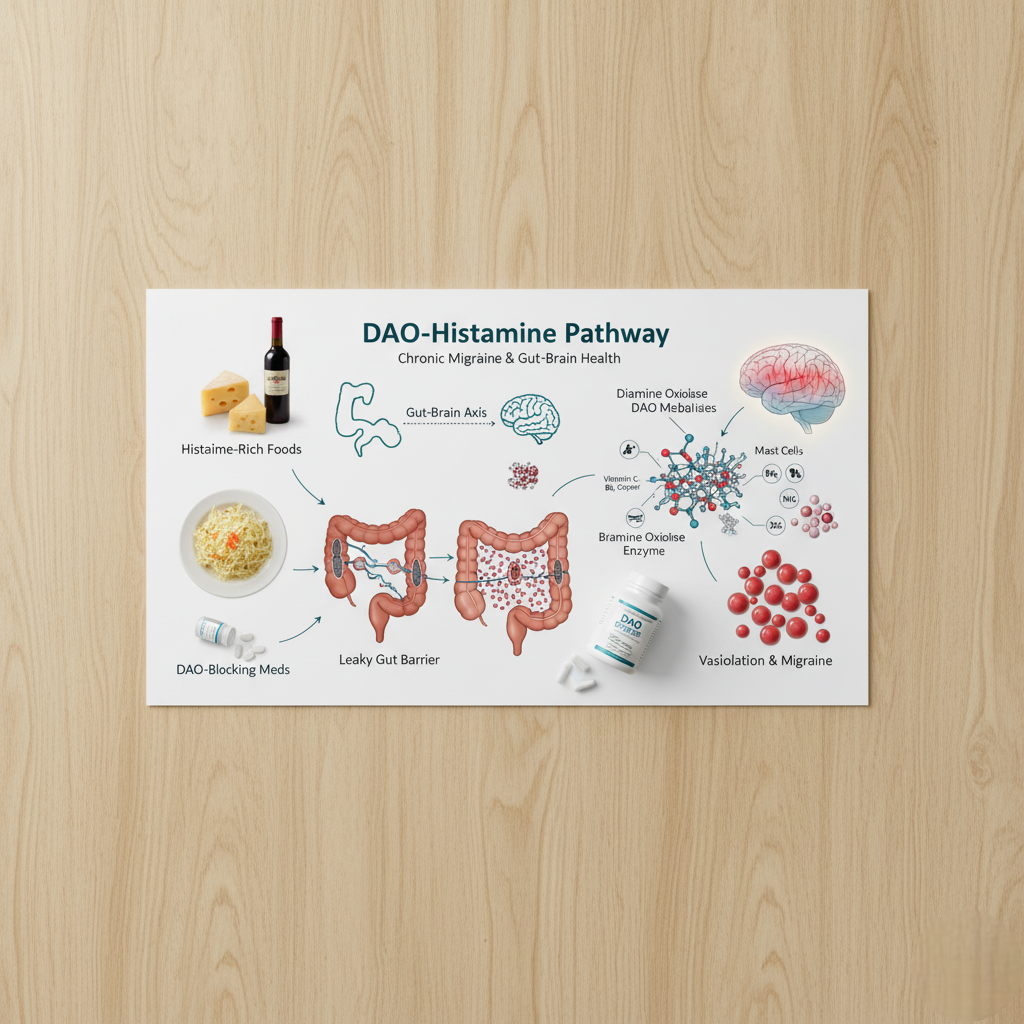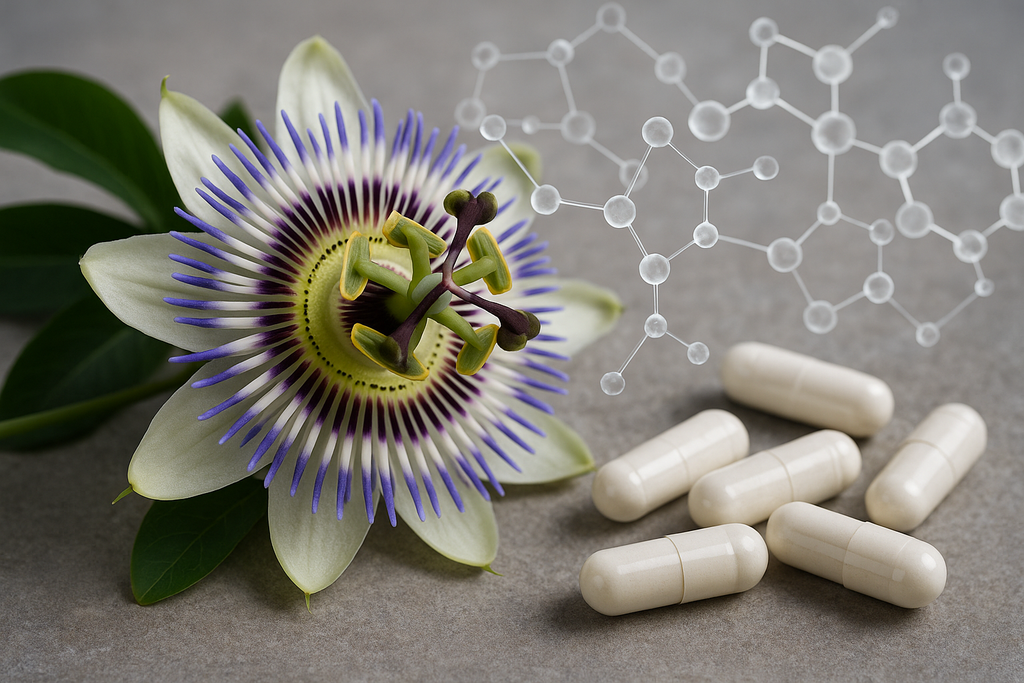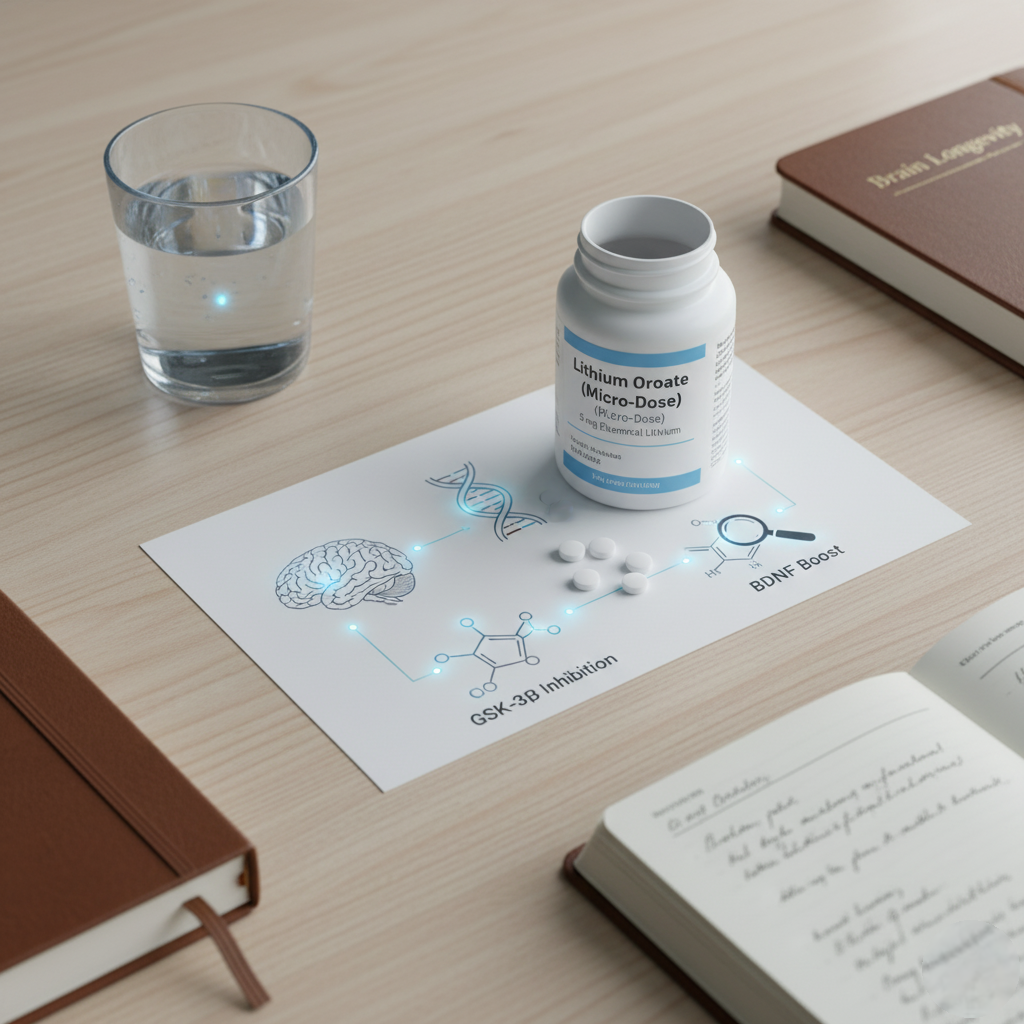News
The DAO-Histamine Pathway: An Explainer on Chronic Migraine and Gut-Brain Health
chronic migraine DAO enzyme histamine intolerance
For those struggling with chronic migraines, unpredictable digestive distress, or mysterious flushing, the culprit may not be an allergy, but a simple enzyme deficiency. This is the **DAO-Histamine Pathway**—a critical balance between the histamine we consume (and produce) and the **Diamine Oxidase (DAO)** enzyme our small intestine creates to break it down.
When DAO levels drop due to genetics, gut damage, or certain medications, dietary histamine floods the bloodstream, contributing to neuroinflammation, vascular headaches, and systemic sensitivity. This article dives deep into the science of histamine intolerance, its central role in the gut-brain axis, and practical strategies—from dietary changes to targeted supplementation—to restore this essential balance and find relief.
The Chrysin Bioavailability Problem: Why Your Supplement Might Not Be Working
chrysin bioavailability chrysin supplement chrysin testosterone
Chrysin has become a buzzword in the natural health and bodybuilding communities. This flavonoid, found in passion flower and honeycomb, has shown promising anti-estrogenic, antioxidant, and even anxiolytic properties. It's often marketed as a testosterone booster and aromatase inhibitor—but if you've been supplementing with chrysin and not seeing results, you're not alone.
Despite its potential, chrysin suffers from one critical issue: poor bioavailability. In simple terms, most of it never makes it into your bloodstream. Before you toss your chrysin bottle in frustration, it’s worth understanding why this happens—and what can be done about it. This article dives into the science behind chrysin’s absorption issues and explores what you can do to unlock its full potential.
Exploring the Micro-Dose Lithium Hypothesis for Cognitive and Mood Health
lithium orotate micro-dose lithium neuroprotection
Lithium is famously known as a powerful psychiatric medication for Bipolar Disorder, but an entirely different conversation is happening around **micro-dose lithium** (often Lithium Orotate). This trace mineral, found naturally in our environment, is hypothesized to be a foundational micronutrient for brain health, offering significant neuroprotective and mood-stabilizing benefits at dosages 50 to 1,000 times lower than clinical prescription levels.
This article explores the compelling evidence—from epidemiological studies linking water lithium levels to reduced suicide rates, to its molecular role in inhibiting GSK-3β and boosting BDNF—that suggests micro-dose lithium is a potent tool for long-term cognitive maintenance and subtle mood support, all without the toxicity concerns of high-dose pharmaceutical use.
Why Bunion Correctors Don't Work: Real Relief Through Foot Strength & Inflammation Support
bunion correctors bunion pain toe spacers
Bunions are painful, frustrating, and often misunderstood. Many people suffering from them are desperate for relief and end up spending hundreds—if not thousands—on bunion correctors, toe separators, or surgery. The promise? To "fix" the bunion. But here’s the hard truth: most bunion correctors don’t actually correct anything. They offer short-term comfort, not a long-term solution.
If you're tired of gimmicks and want to understand what really improves bunions and restores foot health, this article will walk you through the science behind toe spacers, foot strength, and the inflammatory aspect of bunion pain. Plus, we’ll introduce powerful support options like CurcuPEA+, a unique PEA + turmeric complex designed to naturally address joint inflammation and pain without side effects.
Is Mewing Effective for Breathing? Separating Viral Claims from Orthodontic Science
Mewing, the internet's favorite technique for a 'better jawline,' is heavily promoted as a fix for chronic mouth breathing and restricted airways. It involves resting the entire tongue against the roof of the mouth, an oral posture deemed essential by orthodontists for proper facial development. But does this viral trend actually open up your airway, or are the claims as thin as the science behind them?
This article separates the functional benefits of proper tongue posture (which are real and backed by myofunctional therapy) from the dramatic, unsubstantiated claims of skeletal remodeling in adults. We explore the role of the tongue and hyoid bone in supporting the pharyngeal airway, discuss the potential risks of improper application, and guide you toward evidence-based solutions for better breathing.





